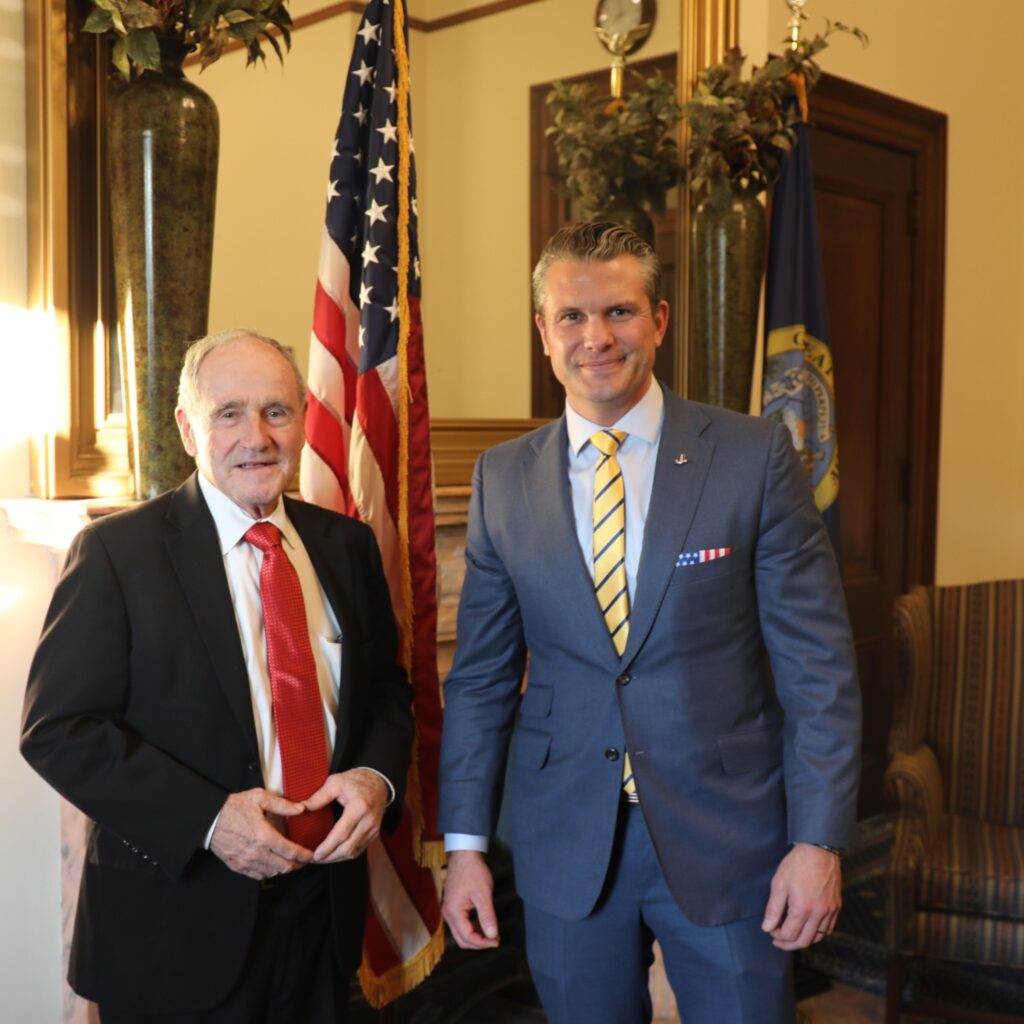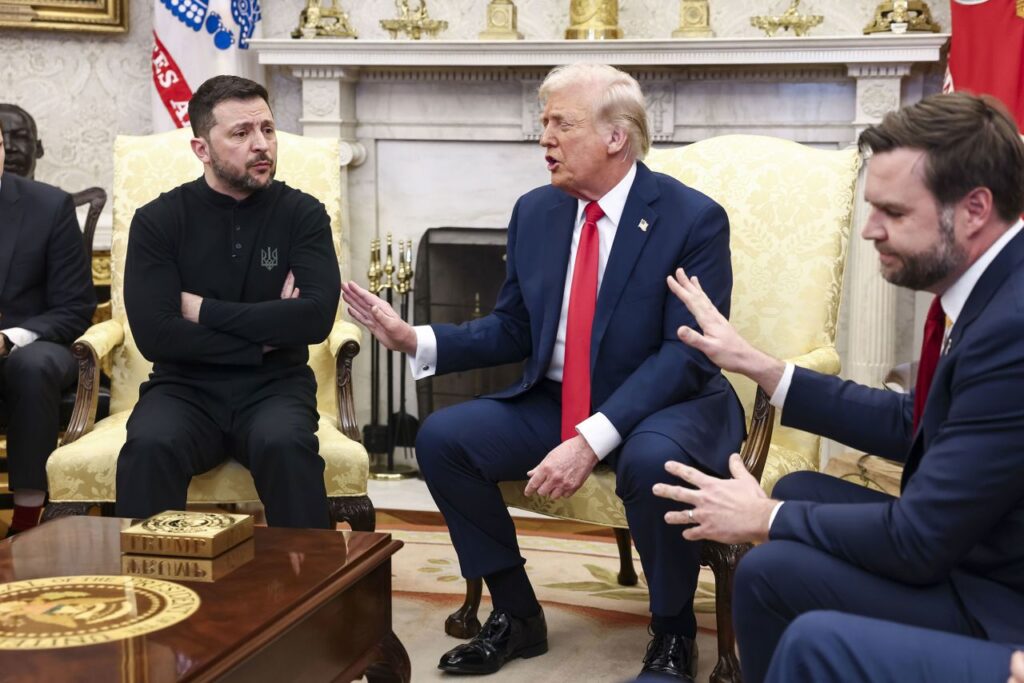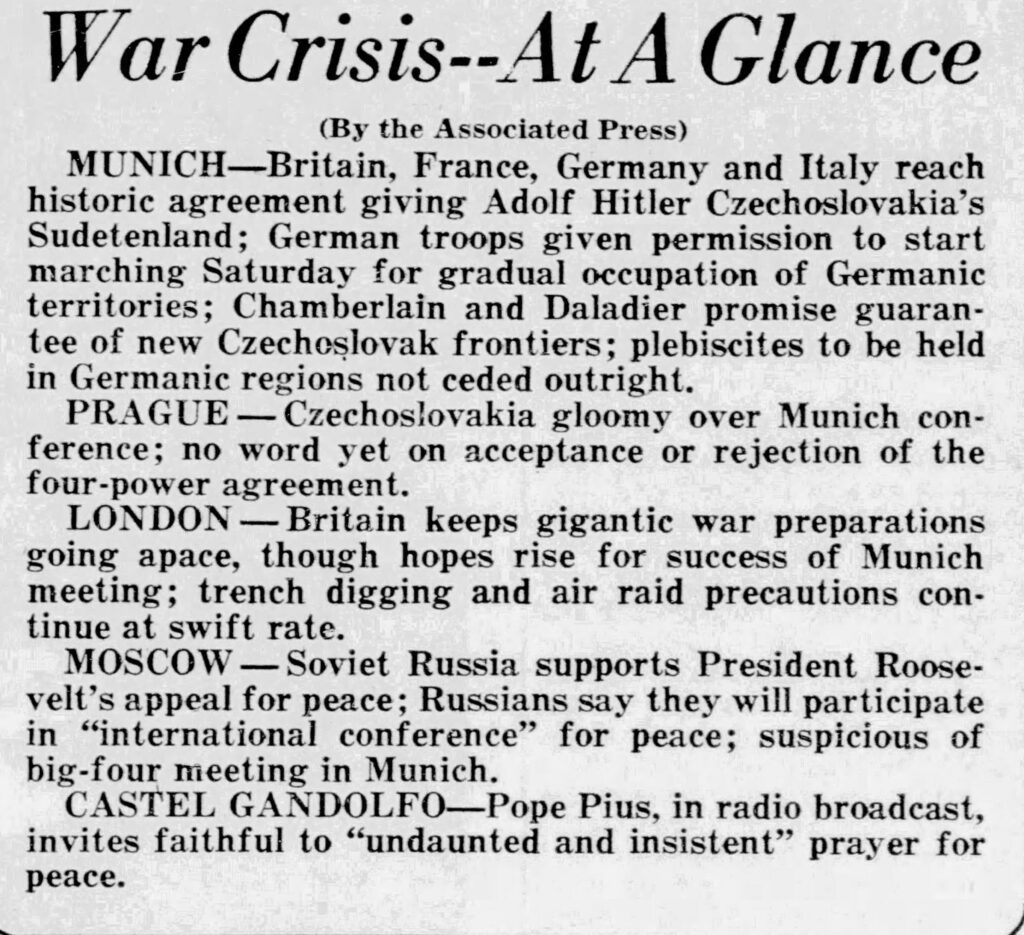It was inevitable.
The idea that the administration of the federal government could be entrusted to a group of demonstrably unqualified Dunning Krugerites selected only for their ability to display servile loyalty was always a disaster in waiting.
“Signalgate,” the unbelievably incompetent use of unsecure text messaging by Trump administration national security figures who ended up sharing secret information about a military strike in the Middle East with a prominent journalist, is precisely the kind of thing — amazing as it is — that zealous, incompetent hacks are wont to do.

This world-class screw up thankfully didn’t end with the loss of American lives, at least that we know of. But this fiasco will prove to be just the first of a cavalcade of arrogant buffoonery that will ultimately define not the “golden age of America,” as the chaos commander-in-chief calls it, but something resembling a battered bedpan holding our nation’s lost international respect, influence and moral authority.
And because this is the Trump administration, the response was not to accept responsibility for an extremely serious mistake — or to fire someone — but rather to gaslight. By Wednesday afternoon, the administration was still claiming that nothing of operational importance had been shared on an insecure messaging app by the former Fox News weekend host who now sits atop the military chain of command.
“These were sensitive and detailed bits of information that if they had fallen into the hands of the Houthis would have caused them to move in offensive weapons against our pilots,” Jack Reed, the ranking Democrat on the Senate Armed Services Committee, told the New York Times in an interview.
Perhaps it’s not all that surprising that an administration headed by a guy who stored state secrets in his bathroom in Florida and once shared secret information with top Russian officials in the Oval Office would so cavalierly treat the safety and security of American fighter pilots.
There is so much in this incredible incident that says so much about not only the individuals on that insecure chat but also underscores the broad free fall on the American far right, a free fall into utter incompetence tightly wrapped in deceitful malevolence.
As the historian Garrett Graff notes, Signalgate provides evidence of at least five scandals that should sink any administration:
1) There was, of course, a massive leak of very sensitive information.
2) Clear evidence of perjury, particularly by Director of National Intelligence Telsi Gabbard and CIA director John Ratcliffe, who brazenly lied to congressional committees this week.
3) Obvious violations of the law relating to the Federal Records Law. The Signal app was set to erase messages after 30 days, a violation of the law.
4) A federal government information technology failure of the first order. Who else not yet known to us was listening in or, thanks to this mess, now has greater insight into how these clownish people handle decision-making and sensitive information?
5) Likely war crimes violations. As Graff wrote, “Reporting at the time last weekend estimated that the U.S. attack discussed in the Signal group chat killed about 31 people, and now the new group chat screenshots (released by The Atlantic) gives us some fresh perspective, including this: We have clear documentary evidence of U.S. officials targeting an entire civilian building to kill a single target.”
If you study the documentary evidence carefully — evidence we have because the president’s national security adviser, Mike Waltz, added a journalist, Jeffrey Goldberg, editor-in-chief of The Atlantic, to the group chat — you’ll be struck by the shallowness of the decision-making that launched airstrikes that killed civilians and put American military personnel in harm’s way.
The chat reads like a bunch of hormone-raging teenage boys talking macho while playacting at incredibly serious jobs. Rather than snapping towels in a locker room, these MAGA Bros are launching drones and dispatching F-18s.

The Atlantic published this screen shot of the infamous chat
On the afternoon of the U.S. attack on Yemen, the national security adviser to the president responded to Vice President JD Vance: “Typing too fast. The first target — their top missile guy — we had positive ID of him walking into his girlfriend’s building and it’s now collapsed.”
Vance responded a minute later: “Excellent.”
Earlier in the exchange of messages, it wasn’t altogether clear that these profoundly unserious people really knew the intent of the president, who naturally initially denied any knowledge of the entire screw-up and then quickly pivoted to more gaslighting.
The Republican senators who voted to confirm people like Gabbard and Ratcliffe and continue to whistle past the national graveyard own this unfathomable chaos. Saying, as most of them did, that incompetent, unserious, careless and unqualified people were suitable for such important responsibilities because “the president is entitled to his team” looks increasingly like a death wish, a political death wish and we can pray not a death wish for all that America has stood for in the post-war world.

In the 71 days he’s been in office, Donald Trump has caved to Russian President Vladimir Putin on Ukraine, displayed utter disdain for our NATO allies, precipitated a profoundly stupid fight with Canada, threatened Greenland and Panama, floated the idea of forced relocation in Gaza in order to build a resort, set off a global trade war that has shaken markets and driven down consumer confidence, destroyed — or tried to destroy — vast parts of the federal government, shut down world-class health research, worsened a measles outbreak, caused numerous countries to issue travel warnings about visiting the U.S. and complained about his portrait in the Colorado state Capitol.
I’m just not used to the United States being the laughingstock of the world.
I’ve long thought this second version of the Trump administration would unravel very quickly and in very many ways. But frankly, the speed and scope of the unraveling is a surprise. And I can’t help but think how much the boys in the Kremlin and in Beijing are enjoying the unraveling. Every day they laugh at this chaos and, of course, benefit from it.
Send in the clowns. Don’t bother, they’re here.
—–0—–
Additional Reading:
They voted for Trump. Will he green light their $2B infrastructure project?
The Port of Coos Bay on the south Oregon coast received a huge grant to modernize its facilities in a bid to create jobs and revitalize an economically challenged area.
Local folks – Republicans and Democrats – support the project, as do all the members of the Oregon congressional delegation.
“In his first week in office, Trump broadly froze many federal grant programs, including some funds allocated by the bipartisan infrastructure law. He has repeatedly denigrated the big spending packages that were a hallmark of the Biden administration. He has not spoken specifically about the Coos Bay port, and the White House did not respond to a request for comment.”
As the President invokes Alien Enemies Act, a museum is dedicated to sharing the stories
“The last time a U.S. President invoked the Alien Enemies Act, Heart Mountain happened. Almost over night, a remote yet beautiful square mile of land deep within the nation’s interior became the third largest city in Wyoming, populated by people who were rounded up in raids and sent packing, hemmed in by guard towers and floodlights.”
Have most Americans forgotten – or never knew – this ugly page of our history?
From The Daily Montana.
The NIH’s Most Reckless Cuts Yet
“The Trump administration has been laying siege to science for months—just this week, the Department of Health and Human Services, which oversees the NIH, announced that it will fire 10,000 people. But the federal government’s disregard for clinical trials is one of the most direct illustrations yet that the nation’s new leaders have abandoned people’s health.”
Are they really intending to be this mean or are they just stupid … or both?
More soon. I’m afraid there will be much more to worry about. Stay in touch. Thanks for reading.




